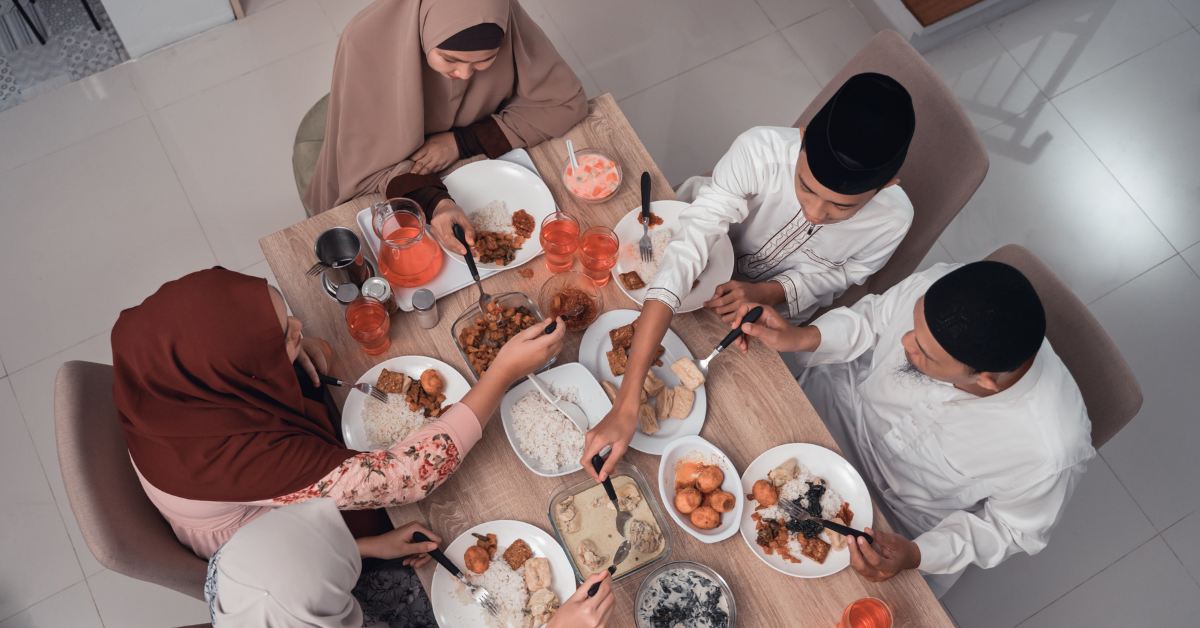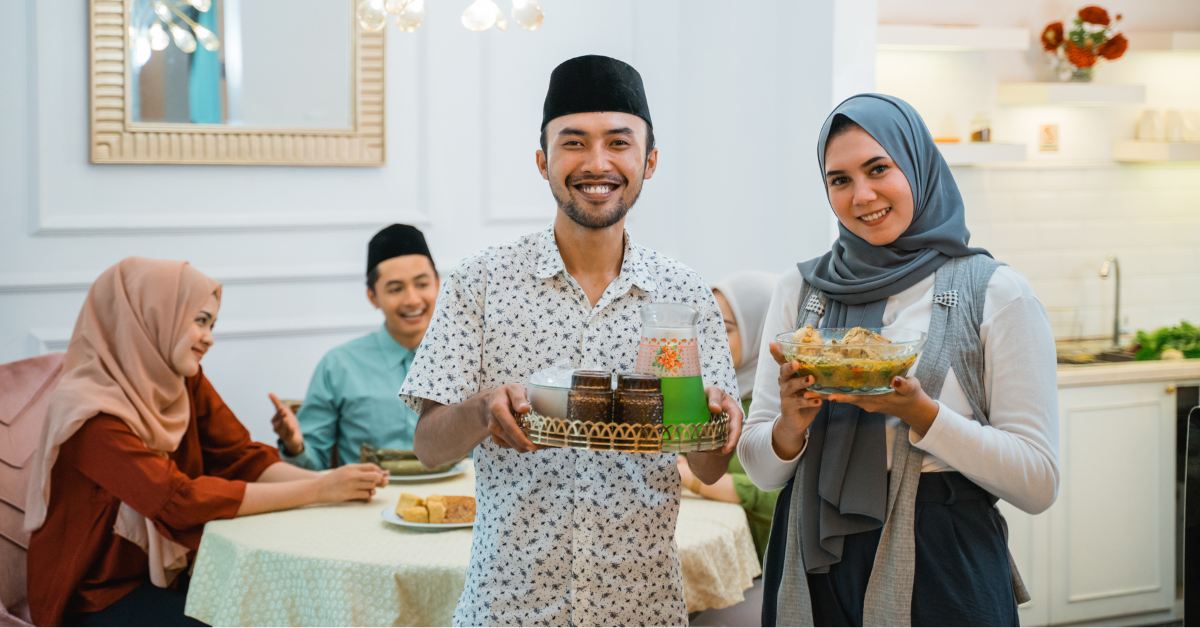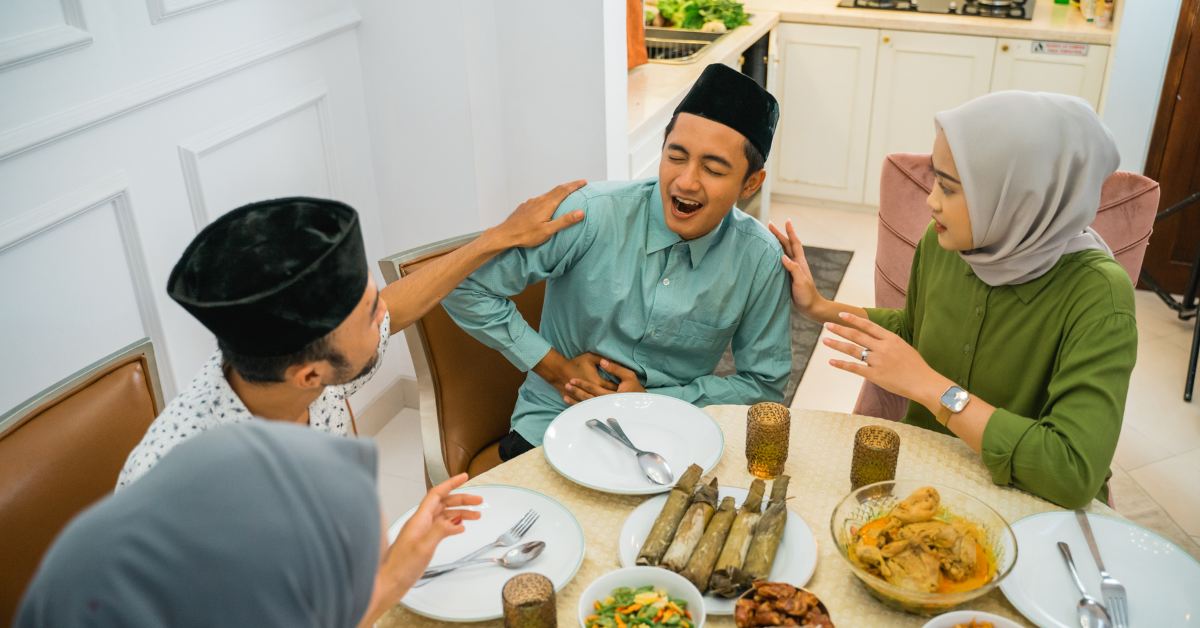Iftar Mubarak is an Arabic phrase that means “blessed iftar” and is used during the Muslim holiday of Ramadan. During this time, Muslims fast from dawn until sunset and then break their fast at sundown. Iftar Mubarak is a greeting to express joy for breaking the fast and can be used when meeting people at the mosque or in other social settings.
The phrase has become widely known throughout many countries with significant Muslim populations, such as Turkey, Saudi Arabia, Egypt, India, and Pakistan.
Responding to Iftar Mubarak is important because it helps foster a sense of connectedness within a community by expressing care and respect for one another.
This article will explore traditional responses to Iftar Mubarak and creative alternatives that can be used in different situations. We will also provide tips on expressing appreciation during Ramadan while giving examples of appropriate responses to Iftar Mubarak.
How Do You Respond To Iftar Mubarak: Respond to “Iftar Mubarak” with warmth and gratitude, saying, “Thank you, and may your Iftar be blessed as well.” Sharing in the spirit of Ramadan fosters connection and goodwill.
What is Iftar Mubarak?

Iftar Mubarak is an Arabic phrase meaning “blessed break of the fast,” and is used to greet those observing the Islamic holy month of Ramadan.
During this month, Muslims abstain from food and drink from sunrise to sunset.
Iftar Mubarak celebrates the breaking of this daily fast each evening at sunset with a special meal.
This greeting acknowledges the sacrifice and devotion that comes with fasting during Ramadan and conveys respect for their commitment to religious observance.
It also shows acceptance of someone who may not be part of one’s immediate circle but shares a common faith tradition.
Iftar Mubarak is a way to show solidarity among all Muslim community members regardless of background or location.
Why is it important to respond to Iftar Mubarak?
Acknowledging Iftar Mubarak is a meaningful way to demonstrate respect for Ramadan traditions. It shows that the greeting recipient is important and valued while also bringing people together in a shared experience.
Responding to an Iftar Mubarak greeting conveys acceptance of someone’s faith and cultural background, promoting unity among diverse individuals. The significance of this exchange extends beyond just words; it acts as a reminder that everyone has different beliefs and practices.
This can create empathy among those unfamiliar with each other’s customs.
Furthermore, responding to Iftar Mubarak creates mutual understanding between cultures by recognizing and appreciating different points of view on religious holidays like Ramadan. Ultimately, these gestures promote feelings of inclusion which can lead to increased harmony between cultures.
Traditional Responses to Iftar Mubarak

In many cultures, responding to an Iftar Mubarak greeting is a traditional way of showing respect and appreciation for Ramadan traditions.
One of the most common ways of expressing thanks and appreciation in response to an Iftar Mubarak is by saying ‘Ramadan Kareem,’ which translates as ‘a generous Ramadan.’ This phrase conveys the idea that Ramadan brings blessings and kindness from Allah.
Additionally, another traditional response is “Jazakallah Khairan,” which means “May Allah reward you with goodness” or “Thank you very much.” These polite responses are used to acknowledge the giver’s generosity and express gratitude for their kind gesture.
They also serve as reminders to strengthen our connection with Allah during this holy month.
Creative Responses to Iftar Mubarak
Recognizing the importance of Ramadan, creative responses to an Iftar Mubarak are often used to show appreciation for the holiday season.
Expressions such as “Wishing you a blessed Iftar” or “Have a peaceful and joyous Ramadan” are common greetings.
Alternatively, more unique phrases like “Hope your heart is filled with joy this Ramadan” or “May your generosity be rewarded during this special time” can also be used.
Other creative messages include wishing someone a happy Ramadan that is full of blessings, love, and positivity.
Additionally, cultural references such as ‘Ramadan Kareem’ can add meaning to an Iftar Mubarak response.
These phrases promote inclusivity and send a message of belonging to those observing the holy month of Ramadan.
Tips for Responding to Iftar Mubarak
When responding to an Iftar Mubarak, one can demonstrate respect and inclusivity by utilizing creative expressions. It is important to be mindful of the language when responding, as it should reflect a sense of acceptance and belonging.
An appropriate response would include phrases such as “May peace and blessings be upon you” or “Wishing you all the best during Iftar.” Additionally, expressing gratitude for being included in the celebration can show appreciation for cultural traditions.
If there is any confusion about how to respond, it is acceptable to ask for clarification respectfully; showing an interest in understanding different cultures fosters a sense of unity across communities.
How to Respond to Iftar Mubarak in Different Situations
Acknowledging cultural sensitivities, how to respond to Iftar Mubarak may vary depending on the situation.
A polite response of ‘Iftar Mubarak’ is appropriate in social settings.
In professional settings, such as an office or business environment, it is best to remain formal and say, ‘ Thank you and I wish you a blessed Ramadan’.
When giving a gift, adding something like ‘Ramadan Kareem’ conveys appreciation for the recipient’s culture.
Additionally, acknowledging this holiday publicly by wishing people, in general, an ‘Iftar Mubarak’ can be seen as respectful and inclusive of all backgrounds.
However, if unsure how to respond due to unfamiliarity with the religion or customs associated with Ramadan fasting, simply thanking the person who offered their wishes could be an appropriate way to show respect without offending anyone.
How to Express Appreciation During Ramadan

Expressing appreciation during Ramadan is an important way to show respect for the culture and beliefs associated with this religious holiday.
It can be done in many ways, including through greetings, gifts, and acts of kindness.
Greetings such as ‘Ramadan Mubarak‘ or ‘Iftar Mubarak’ are often exchanged between family members, friends, and neighbors to wish each other a blessed and peaceful month.
Gifts can also be given to show support for those observing Ramadan.
Finally, offering help or assistance to those who may need it is a great way to demonstrate appreciation for the holiday. These acts of kindness can make all the difference in creating an atmosphere of belonging and respect during this holy time.
Examples of Iftar Mubarak’s Responses
In response to an Iftar Mubarak greeting, traditional responses include wishing the other person well with phrases such as ‘May Allah bless you’, ‘Have a blessed Ramadan’, and ‘Ramadan Kareem’. Being respectful of another’s religious beliefs is important during this time.
Prayers, blessings, and best wishes are shared among friends and family members to create a sense of community during the month-long holiday. Expressions like “I wish you peace and joy this Ramadan” or “I pray that your fast is accepted by Allah” can demonstrate respect for another’s culture and faith.
In addition, expressions like ‘Wishing you an enjoyable evening meal’ and ‘Let us break our fast together’ are appropriate for responding to an Iftar Mubarak greeting.
How Do You Respond To Iftar Mubarak
Responding with “Iftar Mubarak” is a thoughtful way to greet someone during the Islamic holy month of Ramadan. It conveys your good wishes for a blessed and joyful breaking of the fast. To respond to “Iftar Mubarak,” you can say:
“Thank you! Iftar Mubarak to you as well!”
“Wishing you a blessed Iftar too!”
“May your Iftar be filled with blessings and happiness.”
“Same to you! Have a wonderful Iftar.”
“Thank you for the wishes! May your Iftar be blessed too.”
These responses acknowledge the greeting and reciprocate the good wishes warmly and respectfully.
Related Article: BEST WAYS TO RESPOND TO HAPPY FRIDAY
FAQs About How Do You Respond To Iftar Mubarak:
Q.1 What is the history behind Iftar Mubarak?
Iftar Mubarak is an Islamic term that is used to express blessings during the time of breaking one’s fast. It originates from the Arabic words “iftar,” meaning breaking one’s fast, and “Mubarak”, meaning blessed or congratulations. The phrase has been used for centuries to wish good health and prosperity during Ramadan.
Q.2 How is Iftar Mubarak celebrated around the world?
Iftar Mubarak is celebrated around the world in different ways. Muslims break their fast with special meals, prayer, and charity. Communities often gather to celebrate together, sharing food and stories to reflect on the importance of this religious tradition.
Q.3 What are some common greetings associated with Iftar Mubarak?
Common greetings associated with iftar Mubarak include “Ramadan Kareem”, “Iftar Mubarak,” and “Kul ‘am wa enta bi-khair”. These phrases are used to express well wishes towards others during the holy period of Ramadan.
Q.4 What are some cultural customs related to Iftar Mubarak?
Iftar Mubarak is a celebration observed by Muslims during the Islamic holy month of Ramadan. It is customary to break one’s fast with dates and other traditional foods, recite prayers, and participate in special activities such as family gatherings, charity work, and communal meals.
Q.5 What are the spiritual benefits of responding to Iftar Mubarak?
Responding to iftar Mubarak can be spiritually beneficial, as it can help create a sense of unity and belonging among the community. It also shows respect for local culture and customs, which is important in fostering strong relationships between people.
Conclusion:
Iftar Mubarak is an important part of Ramadan, and responding respectfully and meaningfully is essential.
Traditional responses such as ‘Ramadan Kareem’ or ‘Ramadan Mubarak’ and creative messages such as personalized greetings can be used to show appreciation and respect for the special day.
Knowing how to respond in different scenarios, whether online or in person, will ensure you are providing an appropriate response during this important month.
Expressing gratitude during Ramadan can help to strengthen relationships with family and friends, making the fasting season more enjoyable for everyone.
We hope you will be well aware of How Do You Respond To Iftar Mubarak, after reading this comprehensive article. If you have any questions, feel free to comment below!
